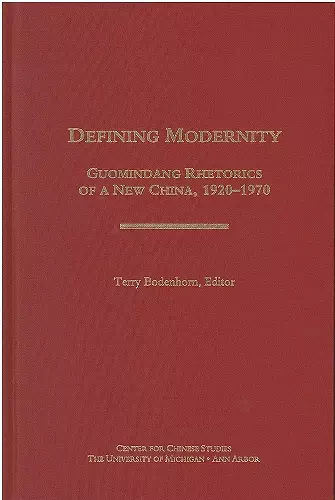Defining Modernity
Guomindang Rhetorics of a New China, 1920–1970
Format:Hardback
Publisher:The University of Michigan Press
Published:1st Jan '02
Currently unavailable, and unfortunately no date known when it will be back

Over the course of the twentieth century, the Guomindang, also known as the KMT or Nationalist Party, articulated and marketed symbols, traits, and institutions crucial to a modernizing China. These included tangible elements (paper money, flags, national anthems), specific institutions (educational, governmental, and scientific facilities), and intangible qualities (nationalism, social trust, social discipline). Understood as the constituents of modernity, all these elements drew the attention and advocacy of Party members.
Defining Modernity offers a reappraisal of Guomindang history based on a close analysis of cultural, ideational, and symbolic practices rather than the more common social, political, and economic frames. Chapters on education policies and practices, Nationalist Party relations with Chinese Christian and missionary communities, the use of paper currency, political propaganda, and the construction of scientific institutions all provide fresh points of comparison with Chinese Communist ideas, practices, and dilemmas. The essays here highlight the complexities and range of creative possibilities confronting a nation-state bent upon the “modernizing” mission.
ISBN: 9780892641611
Dimensions: unknown
Weight: unknown
294 pages